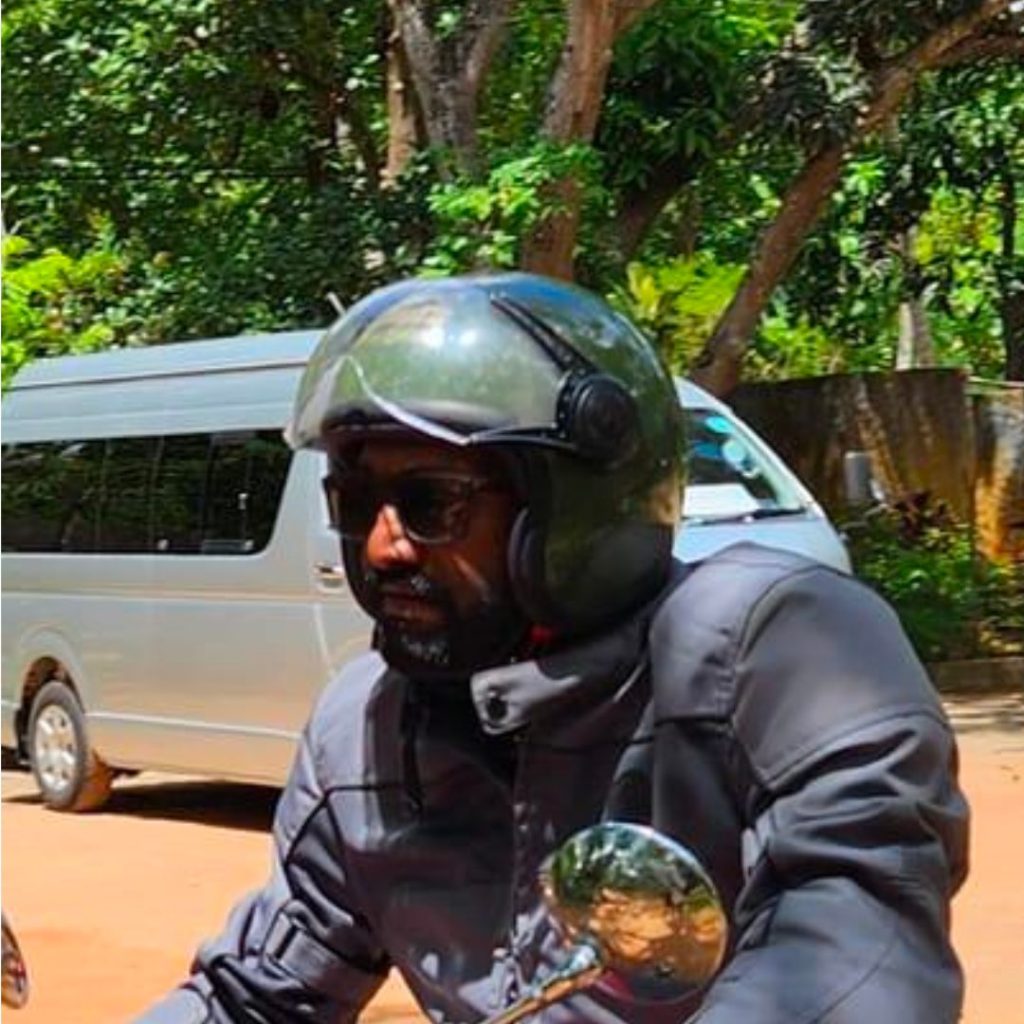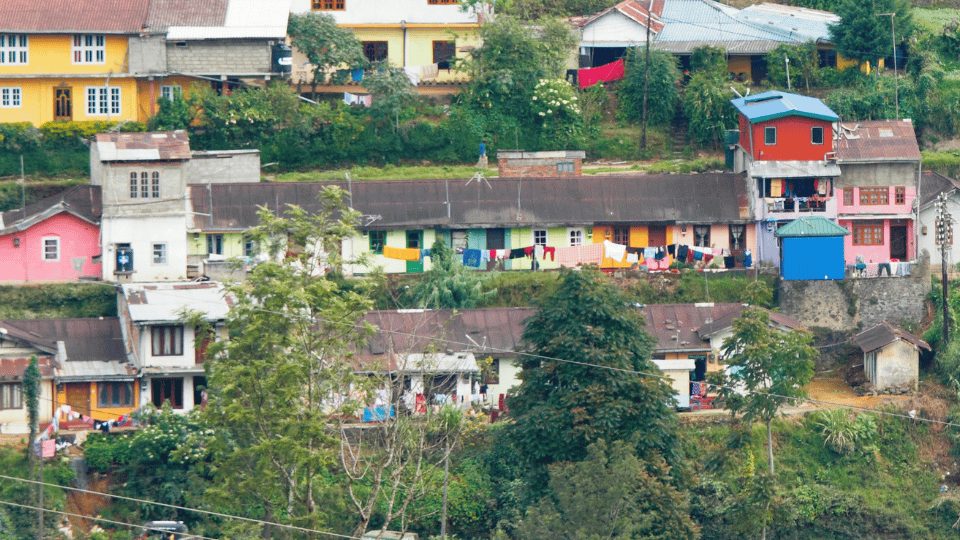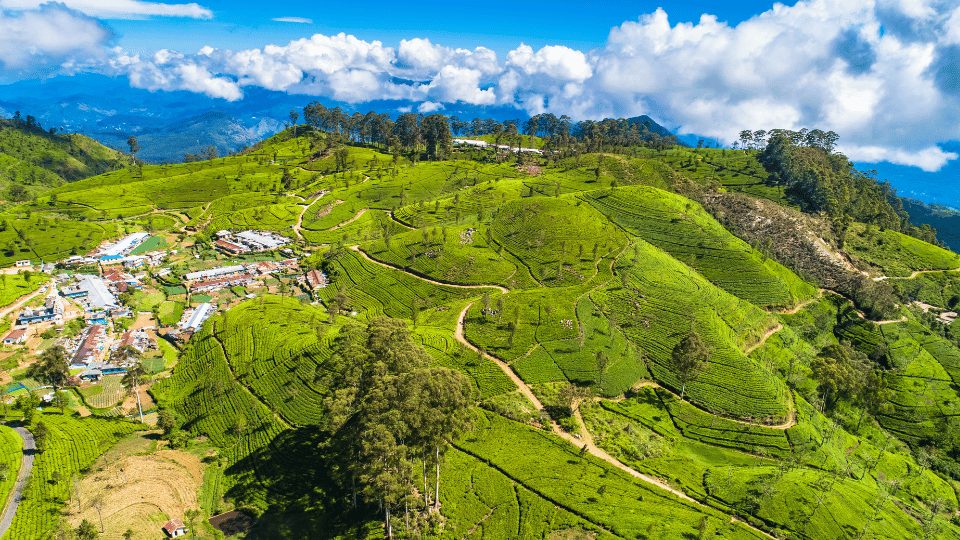Riding through tea plantations
Sri Lanka
During the journey from Nuwara Eliya to Kandy, along a 76 km beautiful winding road starting at an altitude of 1800 meters and ending at 500 meters, we have the opportunity to experience a tea factory tour.
There, we learn about the manufacturing process and the variety of teas produced in Sri Lanka and exported worldwide. In 2023 alone, the island exported 340,000 tons of tea, ranking fourth after China, India, and Kenya.
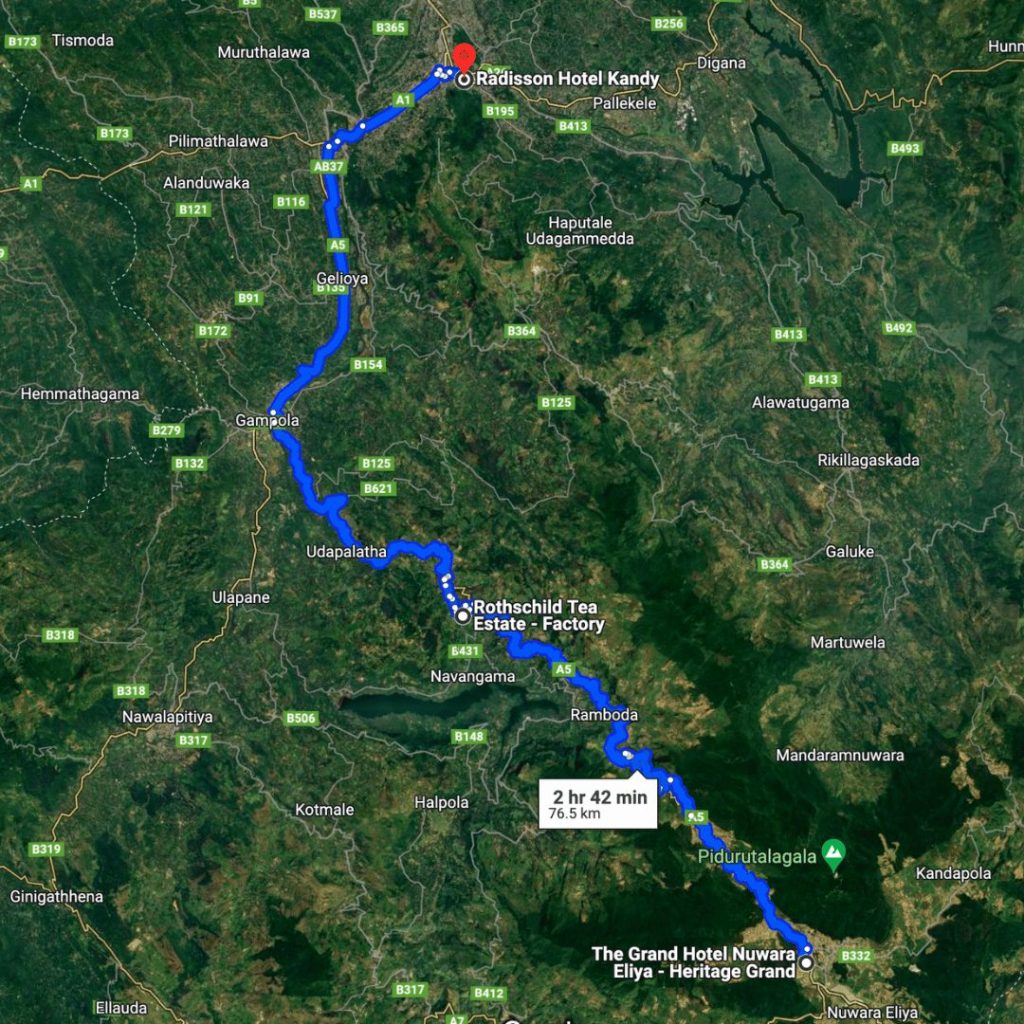
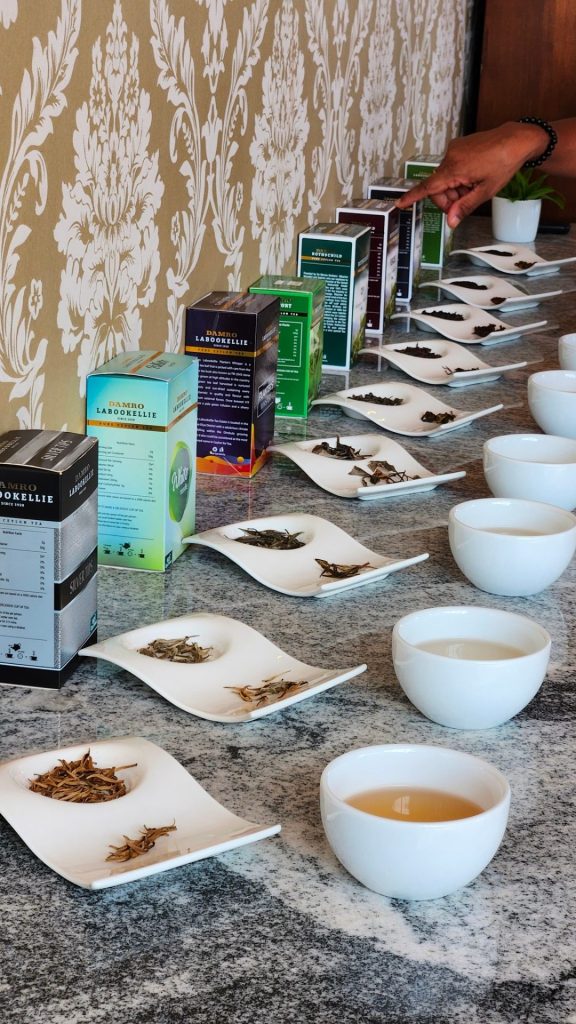
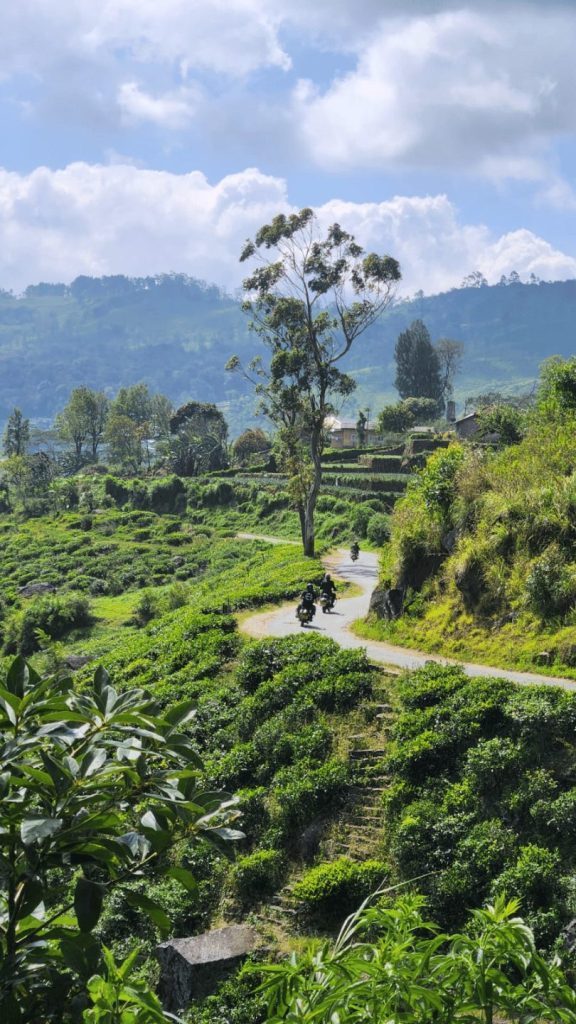
The factory is about 200 meters long, and as soon as you enter, the intense, warm scent of tea is overwhelming. On the first floor, leaves are being dried removing 50% of water by hot air produced from wood-fired ovens before being sent to the ground floor, where the other processes of withering, rolling, oxidation, and final drying are completed.
We are told that 900 pluckers work in two shifts every day starting from 6 am. In the factory, they produce 5000 kg of tea daily, which is then brought to Colombo and sold at auction. After the guided tour, we get to taste different teas and are able to purchase some to take back home.
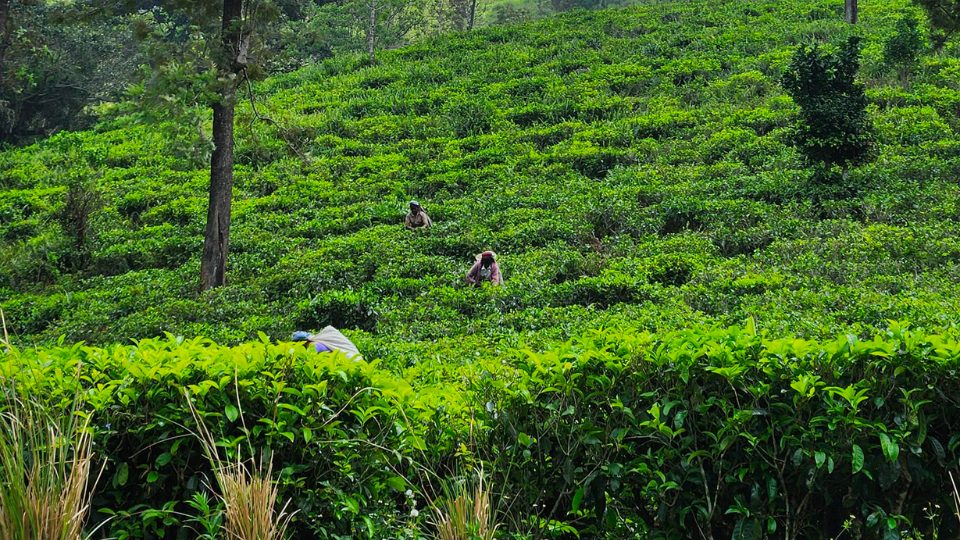
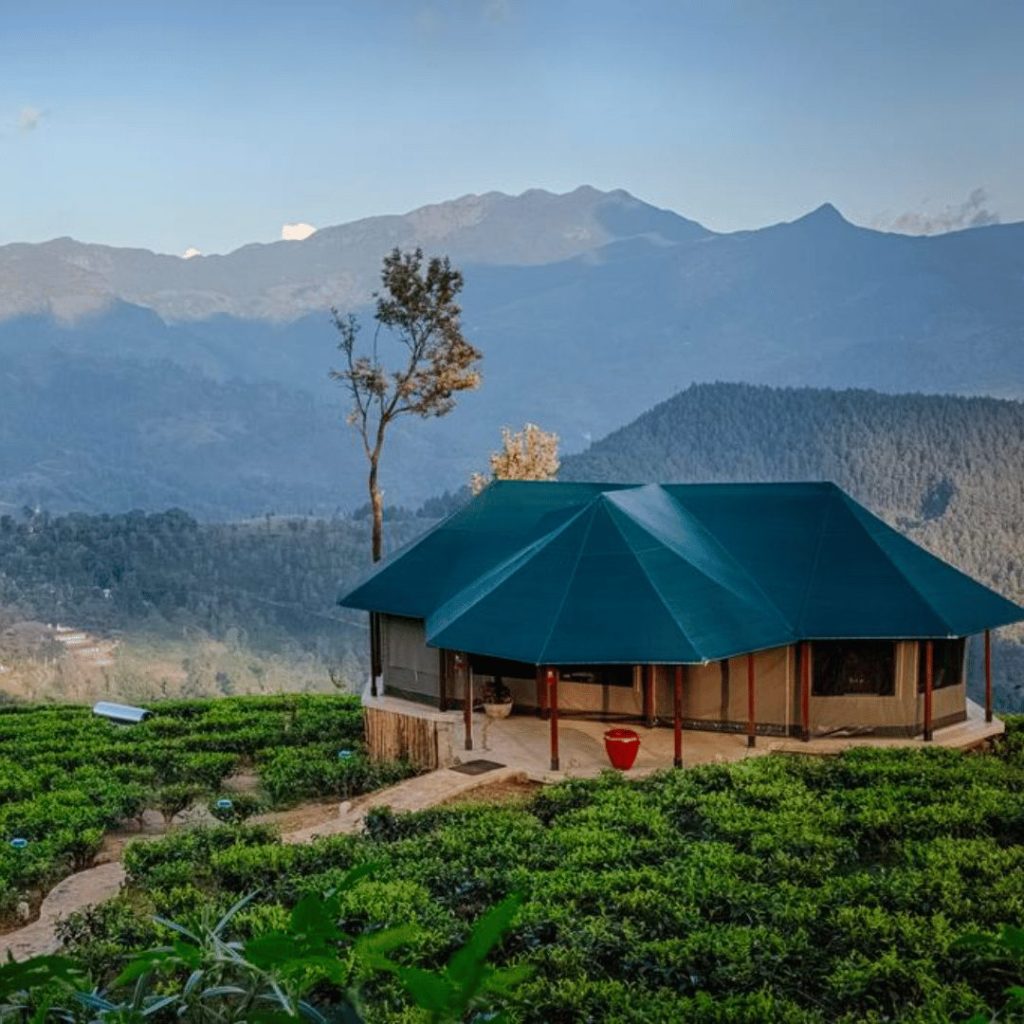
It all begins however with plucking the tea leaves. Staying at the Madulkelle Tea & Eco Lodge, a fascinating glamping resort in a tea plantation with a great view of the southern Knuckles mountain range, gives a sneak peek into the lives of the tea pluckers. They wake up very early, and as the majority are of the Hindu religion, they play devotional songs in Tamil on loudspeakers while preparing their food for the day.
The local communities that live and work in tea plantations are descendants of Indians brought to Sri Lanka during the British colonial time. Generation after generation, have been working in the same industry. Their houses are generally very small and basic, with a maximum of 1 or 2 rooms located in small rural villages within the plantations.
Tea pluckers are mostly women who are expected to pick 20 kg of leaves daily from about 1000 tea bushes. Despite the challenging conditions you are always offered a smile when greeted.
Riding through the tea plantations is an amazing experience. Sometimes the roads can be bumpy with very close hairpins, but the scenery that you take in is unparalleled. One of the best examples of this type of ride is when we visit Lipton’s Seat, a scenic viewpoint near Haputale in the Uva Province of Sri Lanka, named after the Scottish tea magnate Sir Thomas Lipton. A quick climb to about 2000 meters through a narrow road cuts through stunning and endless green tea plantations.
Check out our next motorcycle tours in Sri Lanka
